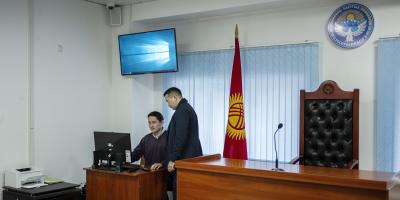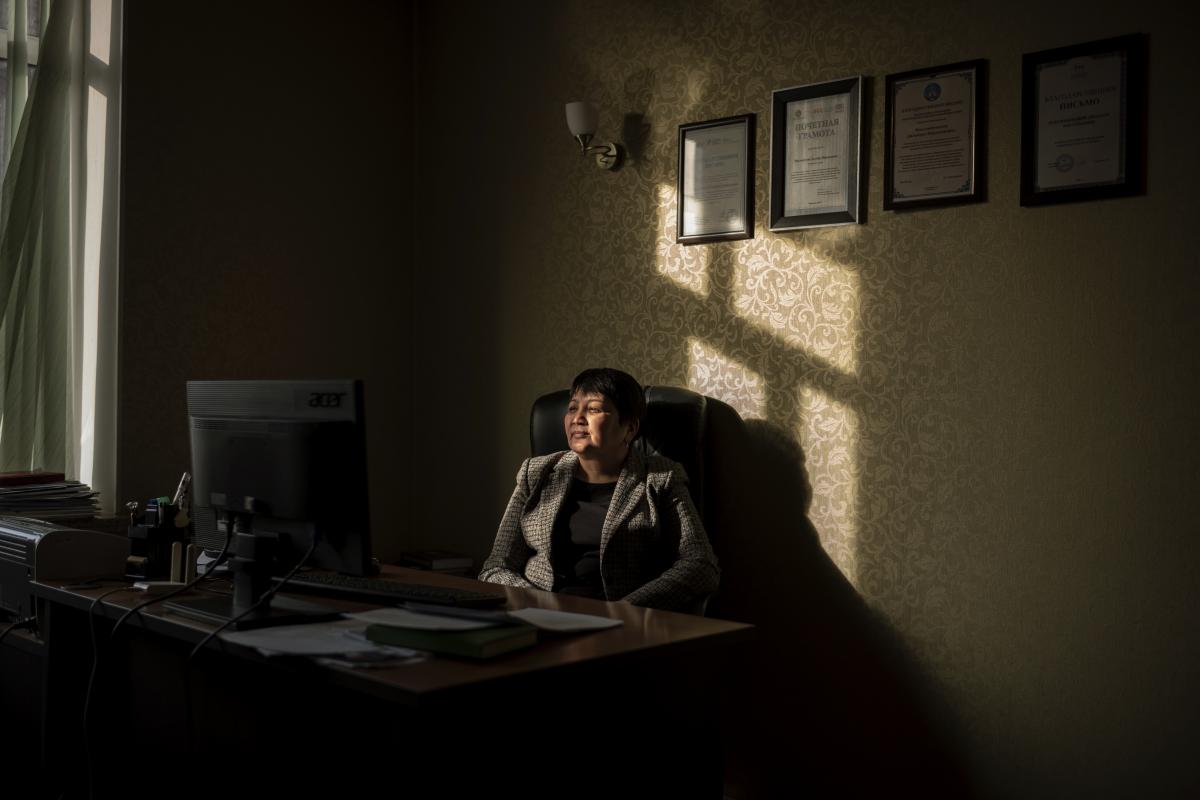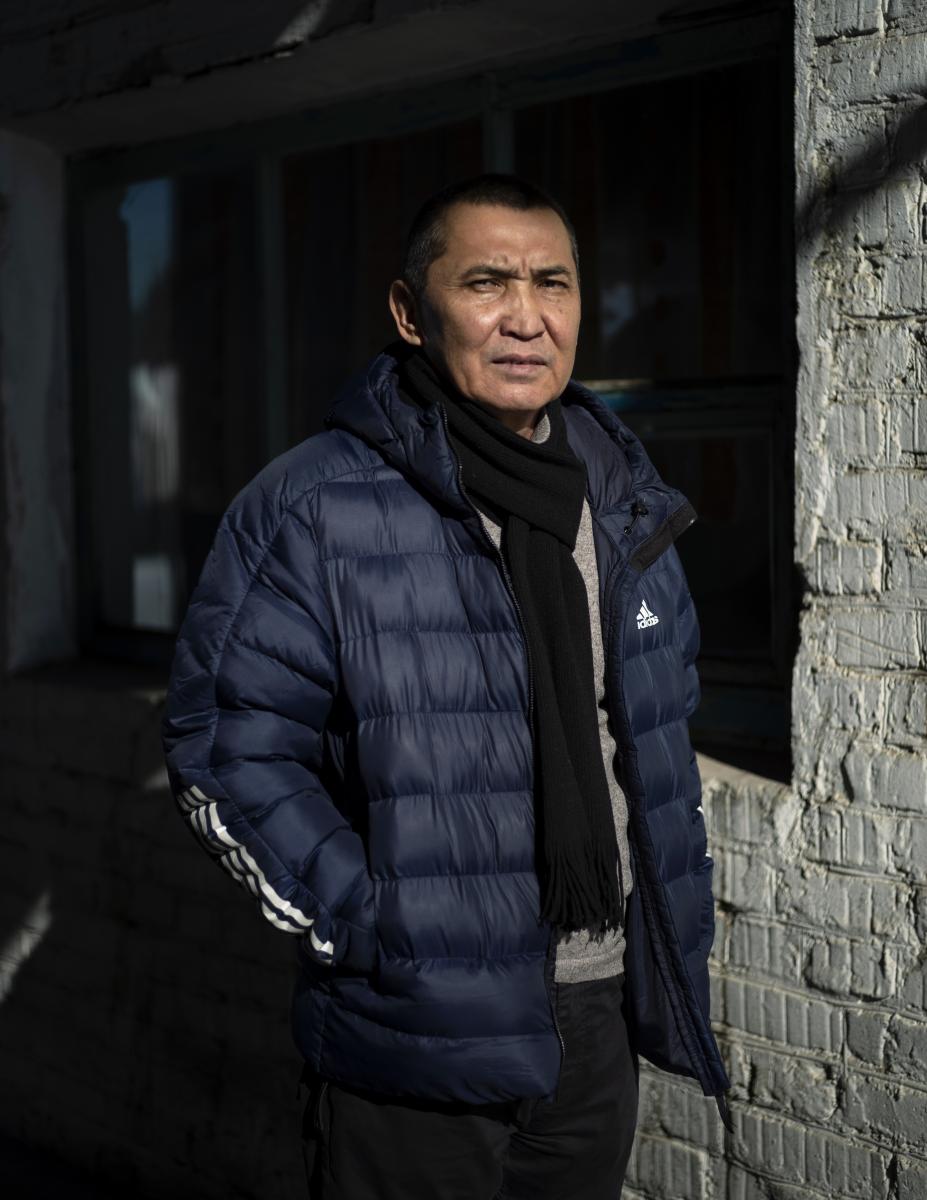
The United States Agency for International Development (USAID) has granted IDLO a prestigious Digital Development Award for its support to the judiciary in the Kyrgyz Republic.
Starting in 2011, IDLO has been working with the Kyrgyz courts on implementing a holistic e-justice initiative that strengthens the integrity of court processes and develops the capacities of the country’s justice system.
The USAID Digital Development Awards “celebrate USAID-funded projects that use digital technology to sustain open, secure, and inclusive digital ecosystems that improve measurable development and humanitarian-assistance outcomes.”
IDLO has provided comprehensive and holistic support to e-justice in the Kyrgyz Republic, combining tailored technical assistance and capacity-building with dedicated political engagement and local ownership. As a result of IDLO’s assistance to the Kyrgyz judiciary, today digital tools allow the routine publication of judicial decisions on a publicly accessible website.
|
Venera Bolotbaeva, land litigation specialist: “You get an overview of judicial practice throughout the country sitting in your office. All you need is the internet.” Bishkek, Kyrgyzstan. |
In 2019, the open publication of judicial decisions surpassed 90 percent, greatly improving transparency. More than 275,000 cases are now publicly available at the click of a button. Expanding transparency is a steady priority. An Automated Case Distribution software offering automatic case assignment, is now fully operational in the Supreme Court and in lower-level courts. This initiative helps to reduce opportunities for corrupt assignments of matters to favored judges within the country’s legal system. Moreover, audio-video transcription capacities are rapidly being introduced in all courts, with transcripts likely to be routinely available to parties by the end of 2021.
The challenges facing the Kyrgyz judiciary
The need for Judicial reform was at the heart of the political instability that rocked Kyrgyzstan over a decade ago. Immediately after the 2010 Revolution, the Kyrgyz Republic began making significant strides in hopes to modernize a national justice system that was seen as lacking in transparency and effective judicial independence. In 2011, a series of Constitutional reforms were implemented to improve the status, integrity and professional capacity of the judiciary. But continued public distrust of the judicial system still caused widespread skepticism of the reform’s lasting impact.
A holistic e-justice approach to foster progressive reform
Capitalizing on a national resolve to reform the Kyrgyz judiciary, IDLO, with the support of USAID, actively assisted a wide range of e-justice initiatives in the Kyrgyz Republic to improve the efficiency, transparency and accountability of the judiciary through digital technologies. Following a detailed needs assessment, the Kyrgyz judiciary, with support from IDLO created ‘Adilet Sot’, a dedicated information technology (IT) platform for the judiciary (www.act.sot.kg).
|
Lawyer Bakhtyer Barpiev and his client Mr. Akylbek Azhimamatov walking on the acquired land after appealing his case together to the Supreme Court to confirm Mr. Akylbek Azhimamatov's rights as a landowner. |
Starting in 2015, IDLO developed a tailored capacity building initiative and launched a wide consultative process with justice stakeholders while further developing and adapting digital software. This incremental adaptive approach proved instrumental when assuring that e-justice interventions were strongly connected in the domestic context. By the end of 2019, almost 90% of all judicial acts were published on the judiciary’s website supported by Adilet Sot. The Judiciary is proceeding with its plans to fully automate publication of judicial decisions, with ongoing support from the IDLO Trusted Judiciary Program, supported by USAID.
IDLO’s has also supported efforts to increase public trust in the Kyrgyz judiciary as an independent branch of power that protects citizens’ rights and upholds the rule of law. Collaboration with civil society and other branches of government have increased effective monitoring and oversight of the judiciary. In 2019, Kyrgyzstan’s judiciary began introducing audio-video transcription (AVT) equipment in courtrooms. By the end of 2020, 77 courtrooms had full sets of needed technology, and 157 of roughly 180 courtrooms across the country had appropriate AVT equipment. This provides a strong foundation for improving speed, convenience and availability of information for participants in judicial proceedings. Verbatim transcription can also reduce false testimony and improper behavior in court.
How a website brought transparency and justice to Kyrgyzstan's land disputes.
Combining e-justice initiatives with budgetary and legislative reform is an important contribution to improving good governance of the judiciary and reducing corruption. In Kyrgyzstan, a focus has been on promoting local ownership of digital programs and preserving judicial independence. Land disputes have served as high-profile cases in point.
|
The land plot and its buildings acquired by Mr. Akylbek Azhimamatov in Kara-Balta region can now be used by local businesses and workers operating on Mr. Azhimamatov's land. |
When Akylbek Azhimamatov was purchasing 19 acres of land for his growing petroleum company in 2015, he did not expect that his acquisition would become a two and a half year-long court battle. Mr. Azhimamatov bought the land plot in Kara-Balta City from a bank. But he only later found out that the land had not been properly privatized and despite owning a title for the property, he had to prove his rights in court. Mr. Azhimamatov initially lost the case twice.
After his fruitless attempts, Mr. Azhimamatov came to the conclusion that going through the courts simply would not work. His case was far from unique. After the collapse of the Soviet Union, a rushed and massive privatization left a lot of room for disputes. Every year, land disputes have made up at least 30% of the caseload of Kyrgyz courts. Errors and misinterpretation of laws by judges have led to unfair decisions in courts. But in 2015, Mr. Azhimetov benefitted from the work of two independent legal experts – Ms. Venera Boltobaeva and Mr. Almaz Akmataliev – who began reviewing hundreds of land disputes in courts all over the country. The review process was made possible by the new online database of judicial decisions, www.act.sot.kg. The program had hundreds of staffers, including IT specialists and judges who developed this groundbreaking tool. The database helps analyze the bigger legal picture in unprecedent ways.
Ms. Bolotbaeva, one of the legal experts who analyzed these cases using the public tech portal says: “you get an overview of judicial practice throughout the country sitting in your office. All you need is the internet”.
Before the introduction of www.act.sot.kg and relevant amendments to legislation, getting a single judicial decision could be almost impossible for a person outside the judicial system, without the consent of the Supreme Court.
|
Lawyer Bakhtyer Barpiev and his client Mr. Akylbek Azhimamatov walking on the acquired land after appealing his case together to the Supreme Court to confirm Mr. Akylbek Azhimamatov's rights as a landowner |
The experts’ analysis clearly indicated all the inconsistencies in court decisions on land disputes, and they prepared recommendations to help resolve land dispute cases in the future. Ultimately, the Plenum of the Supreme Court adopted those recommendations, making them mandatory for the entire judiciary system of the Kyrgyz Republic.
In 2017, Mr. Azhimamatov appealed his case to the Supreme Court. The highest court accepted his appeal and resolved the dispute in his favor. “It was a turning point that made me believe that justice exists,” says Azhimamatov. “With this additional land plot, I was able to offer gas and fuel supply and storage to the farmers and municipal enterprises of Kara-Balta at lower rates.”
Mr. Baktiyar Parpiev, a national legal expert, describes this case is a perfect illustration of inconsistencies that existed in judicial practice. In 2020 a new group of legal experts used the same www.act.sot.kg website to conduct an expanded nationwide analysis of judicial practice on land disputes. The comparative analysis offered comprehensive ways to improve judicial practice. Mr. Parpiev explains that “since this issue was raised and highlighted, the judges will now slowly begin to be guided by them and come to a unified practice.”
Focusing on how land disputes have been managed, now with improved transparency and using e-justice, is a strong example of how digital technologies offer some of the best methods to achieve greater levels of integrity and capacity in the judiciary. This, in turn, is the main driver for greater access to justice for all.
IDLO is honored to accept USAID’s recognition for its efforts implementing holistic digitalization reforms in Kyrgyzstan and is looking forward to continue its promotion of progressive judicial reforms in the country.





